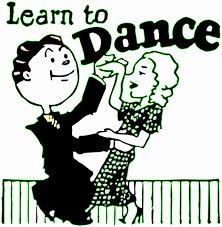Today, we had our first dance input in our Primary Education course…
Now, this is something I had never been interested in or had tried before. I must say though, it was a lot of fun, possibly due to the enthusiasm of the teacher. Obviously due to my huge lack of experience of dance, I was apprehensive about teaching it to my future classes as a teacher.
I must admit, after today, I am far more confident in myself as I now realise you don’t need the experience in dance to teach children. One of the biggest aspects that will motivate children to learn and develop their skills is the enthusiasm of the teacher. If they see you having fun with the lesson, the children will be more inclined to. I believe the inputs we are learning in University will firmly put us in good stead to be successful when teaching dance in primary schools and that my lack of experience in this expressive art will not hinder my progress.

I haven’t always been the biggest believer in dance as a curricular subject but I do see the benefits it can bring to the children such as:
- Can really bring out their creativity!
- Helps children develop new skills!
- Enables them to work collaboratively and individually!
- Improves children’s health (social, physical and mental)
I do agree we should incorporate more dance into schools as after reading the ‘Get Scotland Dancing’ review from 2014, it was clear that other activities were participated in a lot more than dance. Some reasons for the lack of participation in dance are age, gender and simply because people ‘like’ dance and some people don’t.
Another factor to consider is that it was found that young people who are encouraged to take part in certain activities at a young age are more likely to participate in later life and indeed adulthood.
I believe that there may be some challenges incorporating dance into the curriculum. For example, my lack of experience, the pupils may just not be interested, the obvious gender issue and ‘I can’t touch boys/girl’s hands, ew!’ situation. Let’s look at them individually.
I believe I can overcome my fear of teaching dance by reading up on the teaching of dance and have fun, be creative and show my personality in lessons which will hopefully inspire children to get involved even, if like me, they had no interest in dance.
Going back to the gender issue, it has been found that boys are less likely to be interested in dance than girls and at the primary age, certain children may not want to participate as they believe ‘dancing is for girls’ and ‘dancing is stupid’ but I believe dance is for everyone and after today’s interesting start to the day, dancing at 9… I can honestly say it’s a fun experience.
Lastly, the ‘ew boys/girls’ issue, I believe that the only real solution to this is to take part in lessons and try and build everyone’s confidence about dancing with everyone, no matter who they are.


I have gone ahead and set myself some professional development goals which are:
· To overcome my fear of teaching dance in schools.
· Improve my knowledge of dance by reading up on the curricular area.
· To be creative, fun and show my personality in lessons.
· To overcome my embarrassment of dancing in front of people.
I feel if I achieve these goals , I will be well on my way to being a successful teacher of dance when I am a primary school teacher.
The 2014 Review – http://www.creativescotland.com/__data/assets/pdf_file/0004/26149/GSDLitReviewv2.pdf






